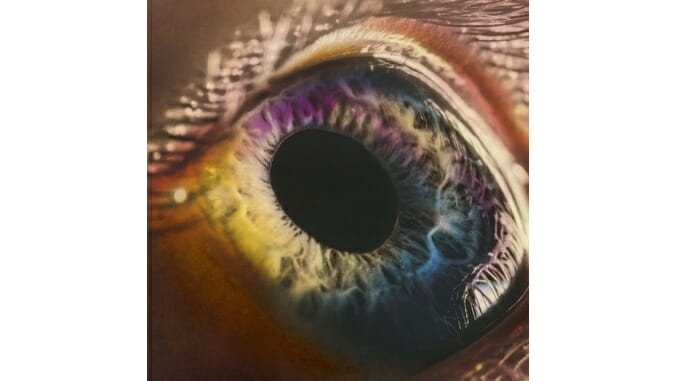On WE, Arcade Fire Recapture Their Former Glory
Win Butler and Régine Chassagne’s songwriting is the most heartfelt it’s been in over a decade

It can be difficult to figure out where to start with Arcade Fire. They’re one of the biggest indie bands around, and, just three albums into their career, they had catapulted their brazen levels of earnestness onto the most prominent festival stages imaginable. With records like 2013’s Reflektor and 2017’s infamous Everything Now, the Canadian indie-rock collective dialed back the sincerity in favor of ironic, insouciant social commentary. But those efforts haven’t aged as gracefully as their earlier output, especially in the latter’s case. However, on WE, the group’s first new album in five years, Arcade Fire return to their former glory. It’s their best album since The Suburbs.
This wouldn’t be an Arcade Fire album without some sort of overarching, macroscopic idea. In the band’s own words, the first half of the record centers on the “fear and loneliness of isolation,” while the second side revolves around the “joy and power of reconnection.” Whereas the heady dispositions of the group’s more recent work made it difficult to connect emotionally with the music, WE doesn’t get too lost in its more byzantine qualities. Win Butler, Régine Chassagne and co. have executed a fine balance between their two modes of operation: the shameless sincerity of Funeral and The Suburbs, and the more esoteric leanings of Reflektor. This album is, in essence, merging The Suburbs with Reflektor, removing the filler, and keeping the conceptual tendencies, such as different song movements, intact without letting them take over the music. Despite sharing a name and a loose association with Yevgeny Zamyatin’s 1924 dystopian novel, WE features Butler and Chassagne’s most heartfelt songwriting in over a decade.
“Unconditional I (Lookout Kid)” is an endearing highlight that Butler wrote for his son. While performing it at Coachella this year, he was overwhelmed by emotion, forcing the band to restart the song. “A lifetime of skinned knees and heartbreak come so easily / But a life without you would be boring for someone like me,” he sings over soaring synths and a bouncy, ebullient groove that evokes the classic Funeral cut “Haiti.” Its follow-up track, “Unconditional II (Race and Religion),” is one of the best moments on the album, and it checks the all-but-mandatory box for Chassagne-led vocals. Although it may be difficult to discern as much from its lofty title, it’s a bona fide love song, with Chassagne speaking to the potency of union and love: “I’ll be yours / You can be mine / Love unites / Breaking as the light divides / Into the color of your eyes.” Just when it seems the song is about to evaporate into a synthy haze, one final chorus kicks back in, and new-wave legend Peter Gabriel materializes out of nowhere to supply guest vocals.
-

-

-

-

-

-

-

-

-

-

-

-

-

-

-

-

-

-

-

-

-

-

-

-

-

-

-

-

-

-

-

-

-

-

-

-

-

-

-

-








































